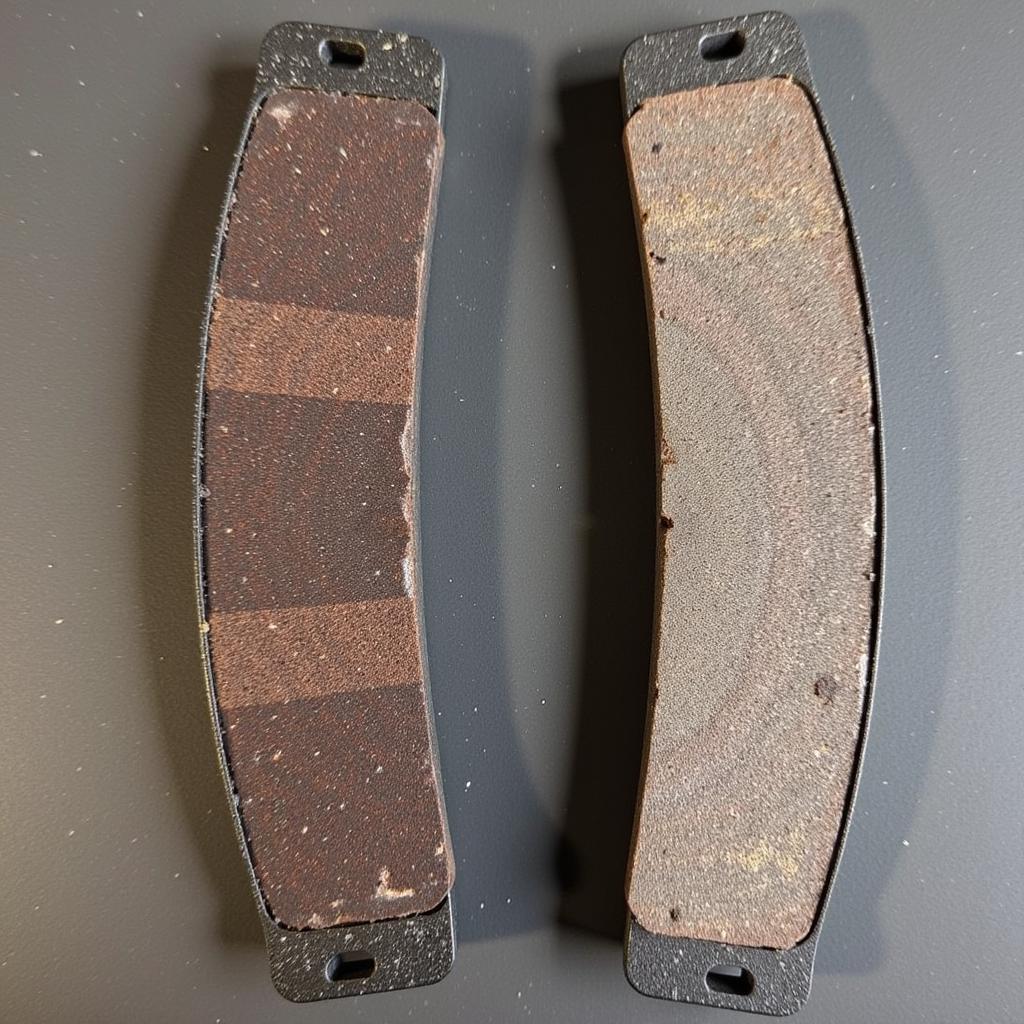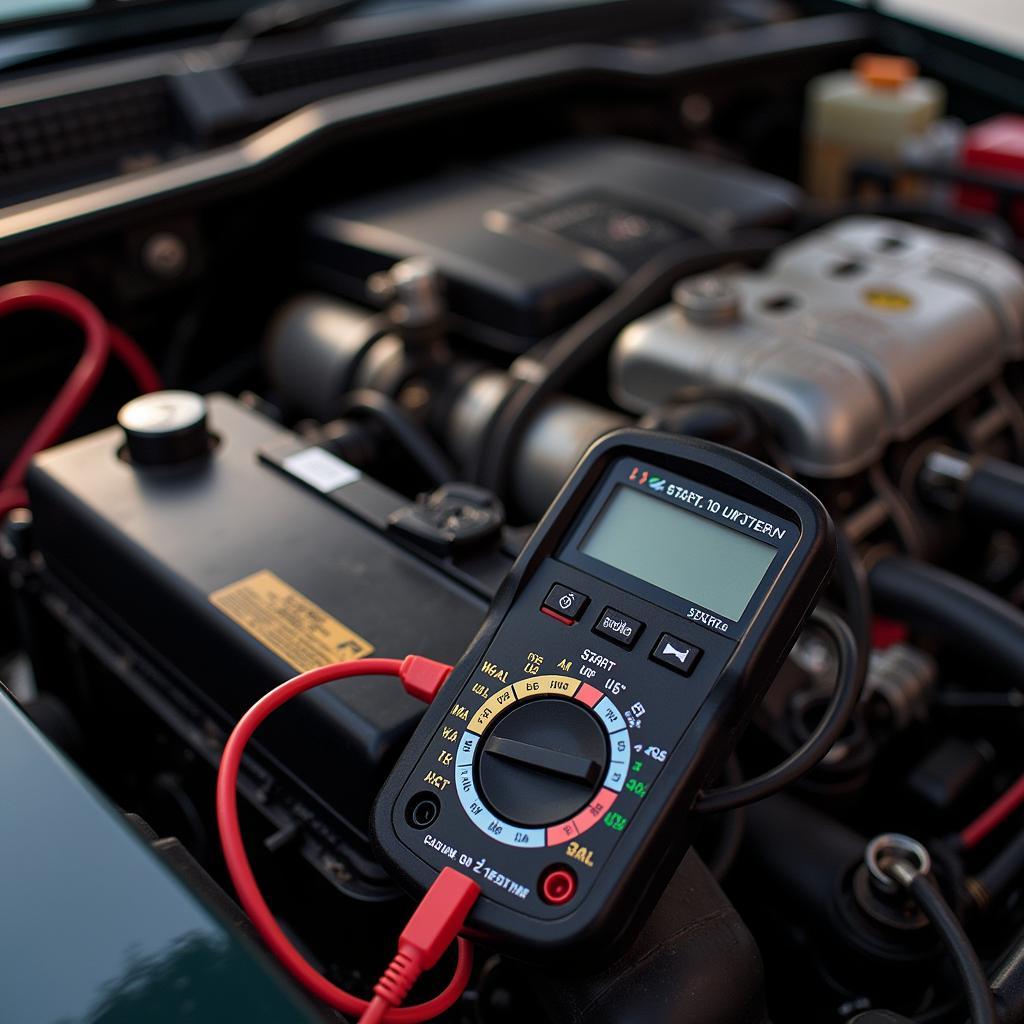Your car’s brake warning light is a crucial safety indicator. Ignoring it could lead to serious consequences. If you’re seeing that ominous glow on your dashboard, understanding what would cause the brake warning light to come on is paramount. This article will delve into the common culprits behind this warning, offering insights and guidance to help you address the issue safely and effectively.
Common Reasons for an Illuminated Brake Warning Light
Several factors can trigger the brake warning light. Some are simple fixes, while others indicate more serious problems requiring professional attention. Let’s explore the most frequent reasons why your brake warning light might be on.
Low Brake Fluid Level
One of the most common reasons for the brake warning light is low brake fluid. Your brake system relies on hydraulic pressure to function, and low fluid can significantly compromise braking power. This often points to a leak somewhere in the system.
Parking Brake Engaged
Sometimes the simplest explanation is the correct one. Before panicking, ensure the parking brake isn’t engaged. While seemingly obvious, it’s a surprisingly common oversight.
Worn Brake Pads
Brake pads are designed to wear down over time. When they reach a certain point, a sensor triggers the brake warning light. This signals the need for replacement to maintain optimal braking performance.
 Comparing Worn Brake Pads with New Ones
Comparing Worn Brake Pads with New Ones
Faulty Brake Sensor
The sensor itself can malfunction, triggering the warning light even if there’s no actual problem with the brake system. A diagnostic check can pinpoint a faulty sensor.
ABS Issues
The Anti-lock Braking System (ABS) is a critical safety feature. If there’s a malfunction within the ABS, the warning light might illuminate. This usually requires professional diagnosis and repair.
What to Do When Your Brake Warning Light Comes On
If your brake warning light comes on, take immediate action. Ignoring it could lead to dangerous situations.
- Check the parking brake: Ensure it’s fully disengaged.
- Check the brake fluid level: If it’s low, add brake fluid but be sure to investigate the cause of the low level. A leak needs professional attention.
- Drive cautiously: If the light persists, avoid sudden braking and drive directly to a mechanic.
“A glowing brake warning light is never a good sign,” says Robert Miller, Senior Automotive Diagnostic Technician at Miller’s Auto Repair. “Ignoring it could lead to costly repairs or even accidents. A quick inspection can often pinpoint the issue.”
Why is My Brake Warning Light Intermittent?
An intermittent brake warning light can be particularly frustrating. It suggests an underlying issue that isn’t constant, perhaps a loose connection or a failing sensor.
“Intermittent problems are often the most challenging to diagnose,” states Sarah Chen, Lead Diagnostic Programmer at Chen Automotive Solutions. “They require a thorough and systematic approach to identify the root cause.”
Maintaining Your Brake System
Regular brake system maintenance can prevent many issues. Here are some proactive steps:
- Regular brake inspections: Have your brakes inspected at least annually or as recommended by your vehicle’s manufacturer.
- Brake fluid flushes: Brake fluid should be flushed and replaced according to your vehicle’s maintenance schedule.
- Quality brake pads: Invest in high-quality brake pads for optimal performance and longevity.
Conclusion
Understanding what would cause the brake warning light to come on is vital for your safety. By addressing the issue promptly and maintaining your brake system, you can ensure safe and reliable stopping power. Never ignore this crucial warning signal; it’s your car’s way of telling you something needs attention.
FAQ
-
Can I drive with the brake warning light on? It’s not recommended. While you may be able to drive short distances, it’s best to avoid driving until the issue is diagnosed and resolved.
-
How much does it cost to fix a brake warning light issue? The cost varies depending on the underlying problem. A simple fix like adding brake fluid could be inexpensive, while more complex issues like ABS repairs could be significantly more.
-
What color is the brake warning light? Typically, it’s red or amber, but check your owner’s manual for specifics.
-
Is a flashing brake warning light more serious? A flashing light often indicates a more serious problem, particularly with the ABS system.
-
How can I prevent brake problems? Regular maintenance, including brake inspections and fluid flushes, is key to preventing brake issues.
-
What if my brakes feel spongy? Spongy brakes could indicate air in the brake lines, requiring bleeding the brakes.
-
Can I fix my brakes myself? While some basic brake maintenance can be done DIY, more complex issues should be addressed by a qualified mechanic.

